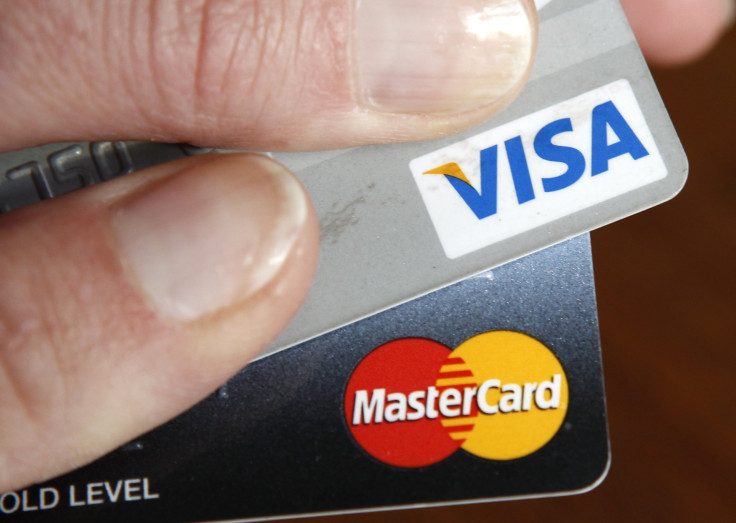Visa, MasterCard $5.7B Settlement With Merchants Over Swipe Fees Wins Judge’s Approval

A federal judge has approved a $5.7 billion class-action settlement against credit card firms Visa (NYSE:V) and MasterCard (NYSE: MA) to resolve complaints of fixing the credit-card fees charged to retailers each time a credit or debit card is swiped, in a ruling that paves the way for the largest private antitrust settlement ever.
Friday’s decision follows years of litigation since 2005, when merchants first sued Visa and MasterCard. In July 2012, a settlement worth $7.2 billion was reached between the companies and retailers nationwide, but the deal fell through after about 8,000 merchants, including Amazon (NASDAQ:AMZN) and Wal-Mart Stores (NYSE: WMT) dropped out of the settlement, and subsequently filed their own lawsuits.
Retailers expressed dissatisfaction over the new settlement, saying it does not help stop credit-card majors from charging higher fees and are considering an appeal against U.S. District Judge John Gleeson’s ruling.
“We are very disappointed that this deeply flawed settlement has been approved,” Mallory Duncan, general counsel at the National Retail Federation, said in a statement, the Washington Post reported. “It is not supported by the retail industry and would do nothing to reduce swipe fees or keep them from rising in the future.”
Merchants pay banks swipe fees or interchange fees, usually between 2 percent to 5 percent of the purchase price, each time a customer uses a card. Retailers had argued that they lack the power to prevent companies from charging higher swipe fees, which cost them and their customers about $30 billion annually, the Post reported, citing the National Retail Federation. The government introduced upper limits on swipe fees for debit cards two years ago, but no such caps are applicable on credit cards.
The settlement allows retailers to pass on to customers the swipe fees for Visa or MasterCard, but retailers are skeptical about the provision, because charging customers extra could drive them away to rivals who do not impose charges on credit-card users.
However, several others involved in the case said the settlement could lead to lower prices for customers based on the mode of payment.
“It will reduce the fees and overall prices that consumers pay, which is good for merchants and consumers,” Patrick J. Coughlin, one of the merchants’ attorneys said, according to the Post. “There will be more transparency in the pricing.”
© Copyright IBTimes 2024. All rights reserved.






















